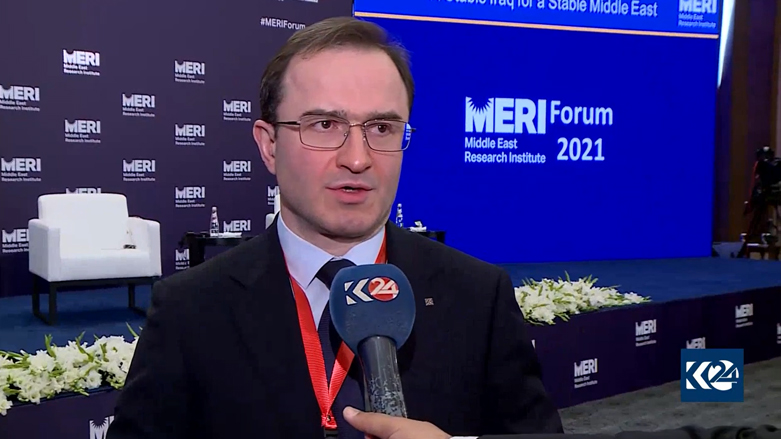Russia Denies Extradition of Assad to New Syrian Authorities
Elbrus Kutrashev described the extradition request as "unacceptable" and emphasized that hosting Assad in Russia does not grant grounds for any political or media activity.

By Ahora Qadi
ERBIL (Kurdistan 24) – The Russian Ambassador to Iraq, Elbrus Kutrashev, has categorically ruled out the possibility of handing over former Bashar al-Assad the ousted president to the new authorities in Damascus, signaling Moscow’s unwavering commitment to shielding its long-time ally despite shifting dynamics within Syria.
In a statement issued on Sunday, Kutrashev described the extradition request as "unacceptable" and emphasized that hosting Assad in Russia does not grant grounds for any political or media activity on Syrian soil.
Moscow Rebuffs Calls for Accountability
The ambassador’s declaration follows calls from the newly formed Syrian government, led by President Ahmad al-Sharaa, for Assad to be handed over to face legal and political scrutiny. During a diplomatic meeting in Damascus with Russian Deputy Foreign Minister Mikhail Bogdanov on February 29, President al-Sharaa reportedly urged the Russian side to cooperate in facilitating Assad’s return to Syria for judicial proceedings.
Despite these appeals, Moscow remains resolute. "The extradition of Bashar al-Assad is not on the agenda," Kutrashev asserted, stressing that such a move would contradict the principles under which Assad has been allowed to remain in Russian territory following his departure from power.
Diplomatic Maneuvers Behind Closed Doors
On Feb. 28, 2025, Russian state agency TASS confirmed that a senior delegation, led by Bogdanov and Kremlin envoy Alexander Lavrentiev, had arrived in Damascus for talks with the new Syrian leadership. These discussions, according to diplomatic sources, included proposals for deepening Russian-Syrian cooperation and outlining the future role of Assad amid Syria’s fragile political transition.
However, Dmitry Peskov, spokesperson for the Kremlin, dismissed any speculation regarding Assad’s handover. “This issue is not currently under discussion,” he stated bluntly in response to inquiries, refraining from elaborating further.
A Shadow That Won’t Disappear
The ousted president’s continued presence in Russia—and Moscow’s staunch refusal to relinquish him—casts a long shadow over Syria’s transition. For many, Assad represents a painful era marked by chemical attacks, mass displacement, and years of civil war. His evasion of accountability remains a source of tension between Syria’s new authorities and their Russian counterparts.
Russia’s diplomatic intransigence suggests that, while Assad may no longer hold formal power, his legacy remains tightly entangled with Moscow’s strategic interests in the region. As Syria attempts to rebuild and reconcile.
